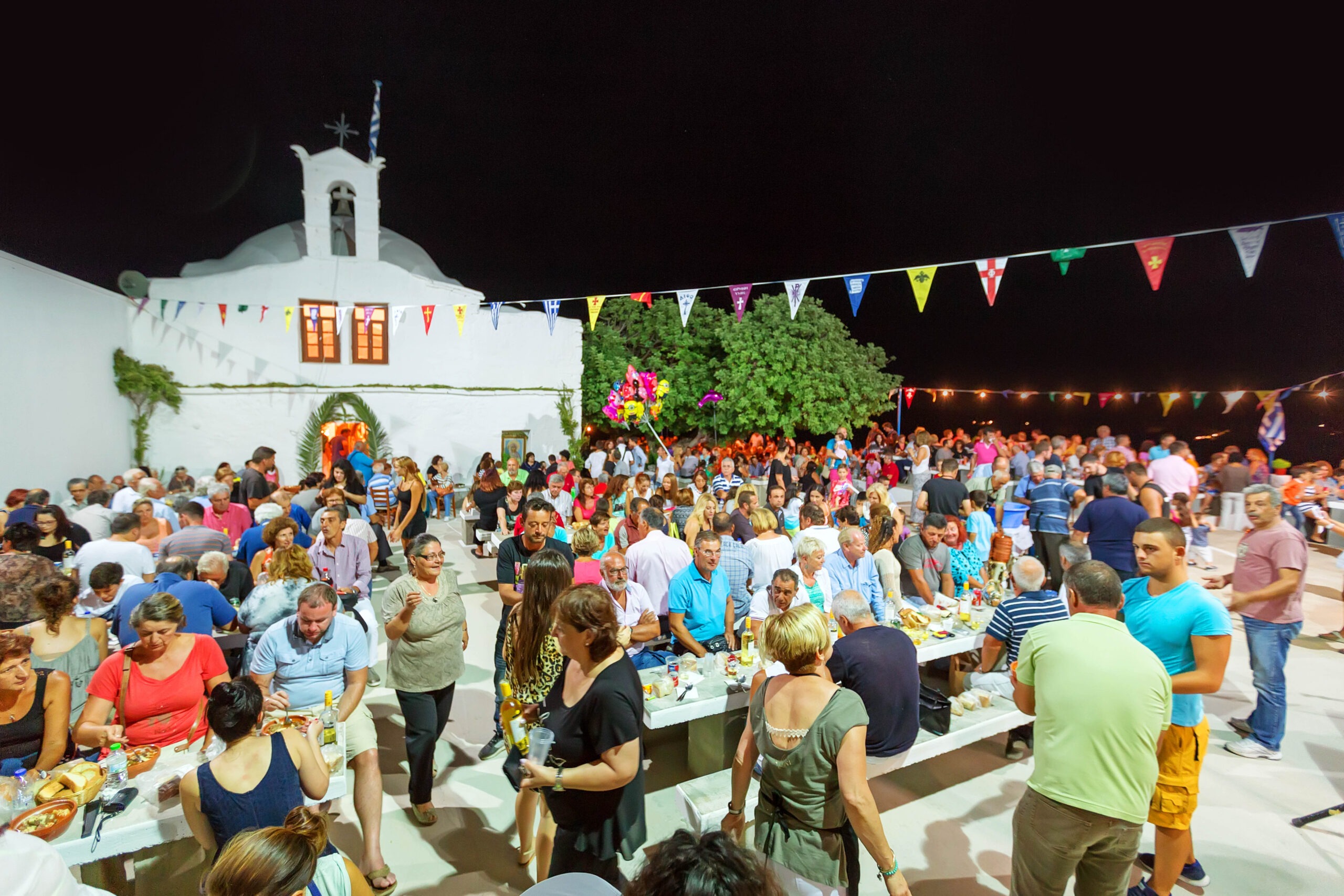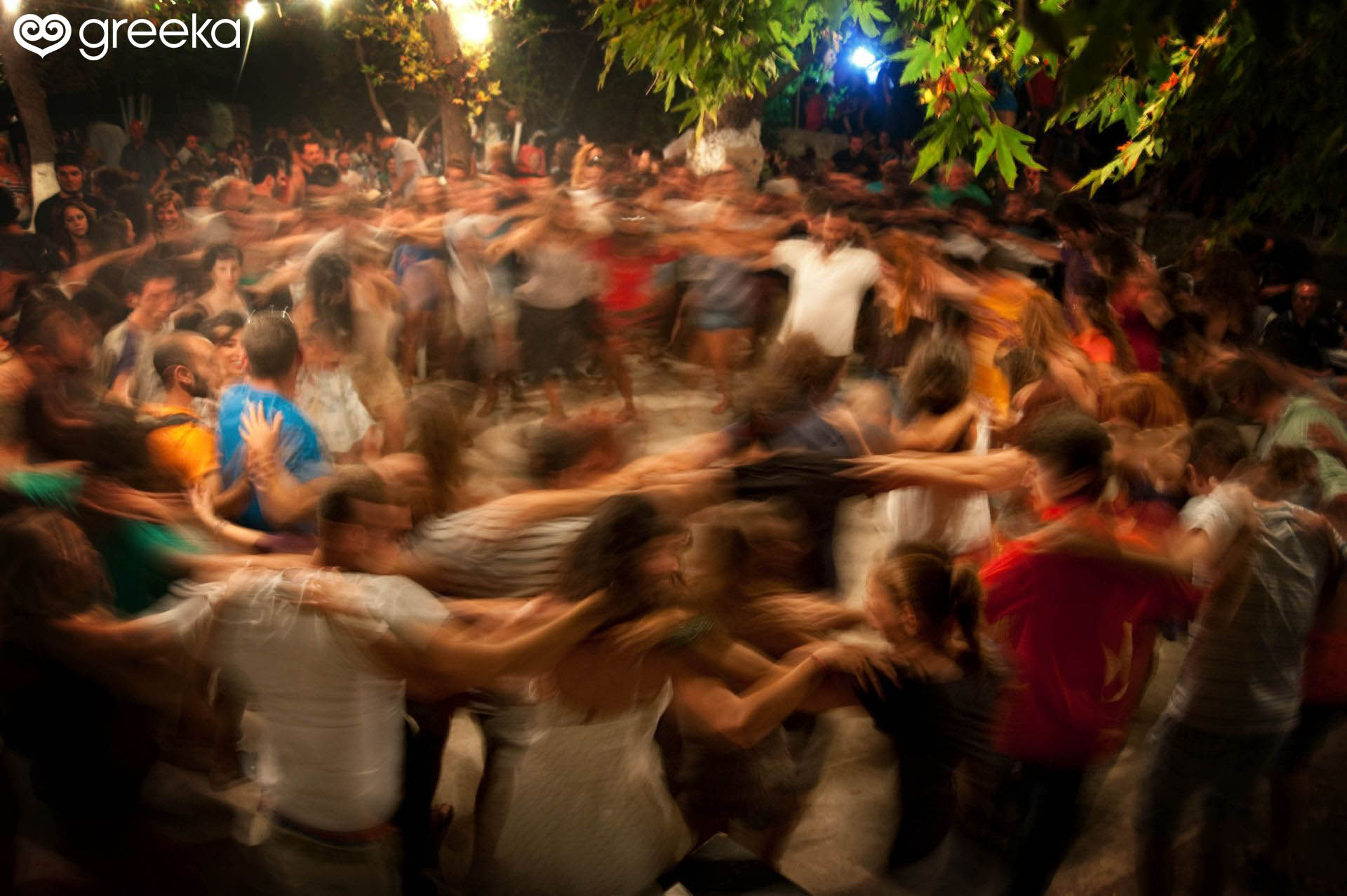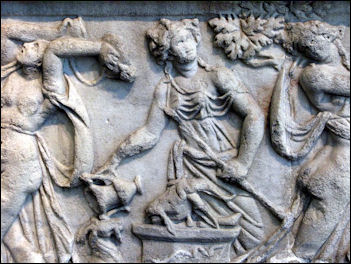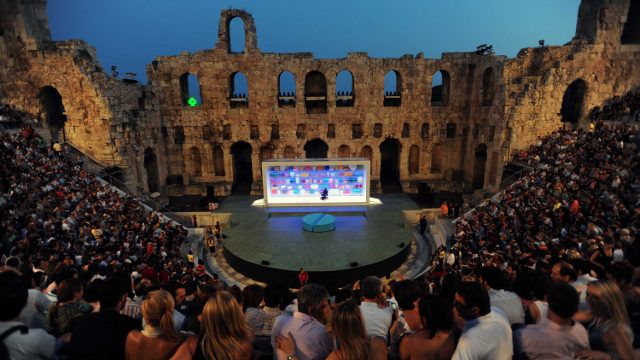Unleash Your Inner Greek: Festivals & Holidays in Greece

Introduction
Overview of Greek National Holidays, Celebrations, and Festivals in Greece
In Greece, various national holidays, celebrations, and festivals are deeply ingrained in the country's cultural fabric. Greek Orthodox Easter holds significant importance, with traditions such as the Epitaphios Procession and the midnight Resurrection service being widely observed. Independence Day on March 25th is another key national holiday commemorating Greece's uprising against the Ottoman Empire in 1821. Ochi Day on October 28th is a day to remember Greece's refusal to surrender to the Axis powers during World War II.
Carnival season in Greece, known as Apokries, involves lively street parties, parades, and masquerade balls leading up to Clean Monday – a day of picnics and kite-flying which marks the beginning of Lent. Name Days are also widely celebrated in Greece and are often more important than birthdays. Each day of the year is dedicated to a saint or religious figure, and people named after them celebrate that day.
Summer in Greece brings a plethora of festivals dedicated to various aspects of Greek culture and history. The Athens and Epidaurus Festival showcases theatre and music performances at ancient sites, while the Thessaloniki International Film Festival attracts cinema enthusiasts worldwide.
New Year's Day (Πρωτοχρονιά)
History and traditions of New Year's Day in Greece
New Year's Day in Greece, known as Πρωτοχρονιά, is a time-honoured celebration that dates back centuries. It marks the beginning of the new year according to the Gregorian calendar and is steeped in rich customs and traditions. Greeks typically view the new year as a fresh start, filled with hopes and aspirations for the year ahead.
Celebrations and customs on New Year's Day
On New Year's Day, Greeks celebrate with family and friends. One common tradition is cutting the vasilopita, a special cake with a hidden coin inside. The person who finds the coin in their slice is believed to have good luck for the coming year. Another custom involves hanging a pomegranate on the front door, symbolizing prosperity and good fortune.

Greek Independence Day (Εικοστή Πέμπτη Μαρτίου)
Significance and historical background of Greek Independence Day
Greek Independence Day, also known as Εικοστή Πέμπτη Μαρτίου, commemorates the day in 1821 when Greece declared its independence from the Ottoman Empire after centuries of foreign rule. This significant event marked the beginning of the Greek War of Independence, a pivotal moment in Greek history that ultimately led to establishing an independent Greek state.
Parades and festivities on Greek Independence Day
On Greek Independence Day, cities and towns across Greece come alive with parades, celebrations, and patriotic displays. Schoolchildren participate in parades, waving Greek flags and wearing traditional costumes to honour the heroes of the Greek War of Independence. Many buildings and streets are adorned with blue and white decorations, the colours of the Greek flag, creating a festive atmosphere throughout the country.

Orthodox Easter (Πάσχα)
Religious significance of Orthodox Easter in Greece
Orthodox Easter, known as Πάσχα in Greek, is one of the most important religious holidays in Greece. It commemorates the resurrection of Jesus Christ from the dead, as described in the New Testament of the Bible.
The Easter season begins with Lent, a period of fasting and repentance, and culminates in Holy Week, which includes special church services and rituals leading up to Easter Sunday. Greek Orthodox Christians attend church services, participate in liturgical processions, and engage in various traditions to honour the religious significance of Easter.
Traditional food and customs during Orthodox Easter celebrations
During Orthodox Easter in Greece, families gather to celebrate with a festive meal known as the Paschal feast. Traditional dishes include tsoureki (a sweet bread), magiritsa (a soup made from lamb offal), and kokoretsi (grilled offal wrapped in intestines). Red eggs are a symbol of Easter and are dyed and often used in a game called tsougrisma, where two people try to crack each other's eggs.
Another custom is the Anastasi service, held late on Holy Saturday, where the resurrection of Christ is celebrated with candles, hymns, and the sharing of light. Throughout Easter, homes and churches are decorated with flowers and candles, creating a joyous and colourful atmosphere to mark this auspicious occasion.

Labour Day (Πρωτομαγιά)
History and Importance of Labour Day in Greece
Labour Day, known as Πρωτομαγιά in Greek, is a public holiday celebrated on May 1st in Greece and many other countries around the world. This day honours the contributions of workers and the labour movement. It has its roots in the struggle for better working conditions and hours, particularly the fight for the eight-hour workday.
Labour Day serves as a reminder of the importance of workers' rights and the ongoing efforts to improve labour laws and regulations to ensure fair treatment and protection for all employees.
Labour Day celebrations and events across the country
On Labour Day in Greece, various events and activities commemorate the occasion. Trade unions and workers' associations organize rallies, marches, and demonstrations in cities like Athens and Thessaloniki. These events often feature speeches, live music performances, and displays of solidarity among workers from different sectors.
Many people also take the opportunity to enjoy a day off work and spend time with family and friends. It is common for people to gather in public parks and squares for picnics, barbecues, and outdoor festivities to mark the holiday. Additionally, some cultural institutions and museums may offer special exhibitions or programs related to labour history and social justice issues on Labour Day.

Ohi Day (Ημέρα του ΟΧΙ)
Commemorating the No against Axis powers in World War II
Ohi Day, known as Ημέρα του ΟΧΙ in Greek, is a national holiday in Greece celebrated on October 28th. This day commemorates the Greek rejection of the Axis powers' ultimatum during World War II, specifically saying "No" to surrender. It symbolizes the Greek people's resistance and determination to fight against oppression and defend their sovereignty and freedom.
Ohi Day traditions and celebrations in Greece
On Ohi Day in Greece, various ceremonies and events are held to honour the day's historical significance. Schools, government offices, and public institutions are closed, and military parades and demonstrations are organized in cities nationwide. The Greek flag is prominently displayed, and wreaths are laid at war memorials to pay tribute to the fallen heroes. Many people attend church services to offer prayers for the veterans and victims of war.
Additionally, cultural activities such as concerts, exhibitions, and lectures may take place to educate the public about the importance of Ohi Day and its role in Greek history. Overall, Ohi Day serves as a reminder of the bravery and resilience of the Greek people in the face of adversity.

Christmas (Χριστούγεννα)
Christmas traditions and customs in Greece
Christmas, or Χριστούγεννα in Greek, is a widely celebrated holiday in Greece. It combines religious and cultural traditions. Families come together to celebrate the birth of Jesus Christ, attend church services and participate in festive activities.
Celebrating Christmas with food, music, and decorations
Traditional dishes like roast lamb, baklava, and melomakarona are prepared and enjoyed during Christmas in Greece. Caroling, known as kalanda, is a common tradition where children and adults sing Christmas carols from house to house. Homes and streets are adorned with twinkling lights, decorations, and Christmas trees, often topped with a star.
Christmas in Greece is a time for families and communities to come together, share meals, exchange gifts, and spread joy and goodwill. It is a time of reflection, gratitude, and celebration of the birth of Jesus Christ.

Athens Epidaurus Festival
Overview of the Athens Epidaurus Festival
Athens Epidaurus Festival is an annual arts festival in Greece that showcases a variety of performances, spanning from ancient Greek drama to contemporary theatre, dance, and music. The festival takes place in Athens and the ancient theatre of Epidaurus, attracting artists and spectators from around the world. It aims to promote cultural exchange and artistic appreciation, highlighting the rich heritage of Greek arts and theatre.
Performances, events, and cultural activities during the festival
The Athens Epidaurus Festival features diverse events, including ancient Greek tragedies and comedies, modern theatrical productions, ballet performances, and musical concerts. Local and international artists present their works to captivate audiences with their talent and creativity. In addition to stage performances, the festival includes exhibitions, workshops, and discussions that delve into the works' artistic process and cultural significance.
The festival provides a platform for artists to showcase their artistry and for audiences to immerse themselves in a vibrant cultural experience. Whether you are a fan of classical theatre, contemporary dance, or experimental music, the Athens Epidaurus Festival offers a unique opportunity to celebrate the arts in a historic and picturesque setting.
